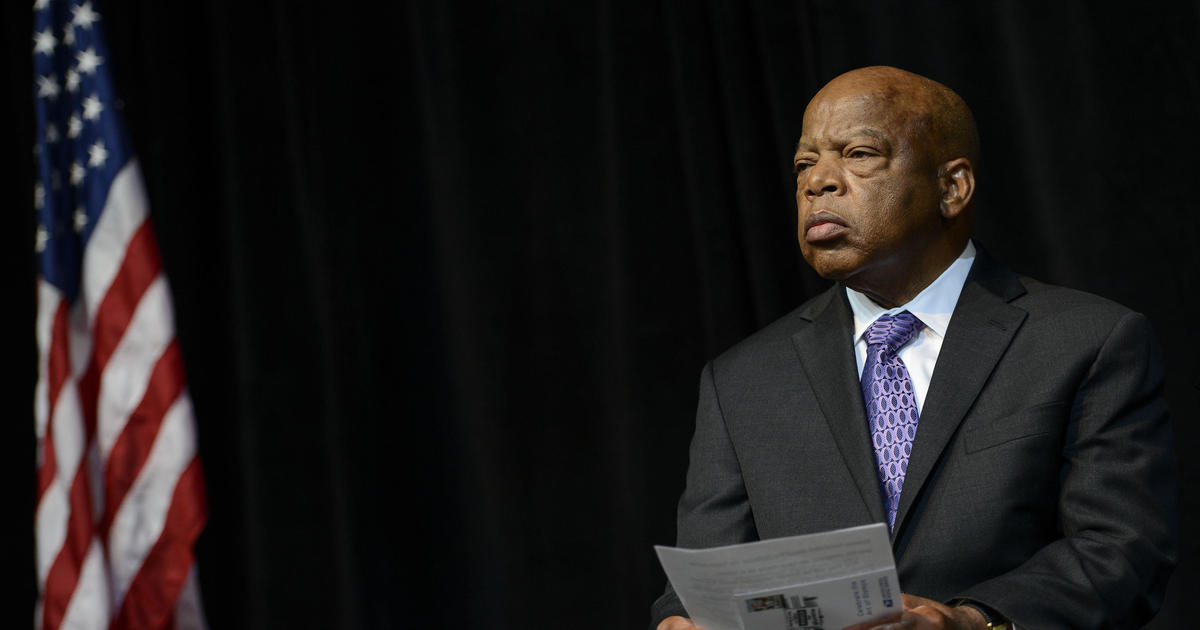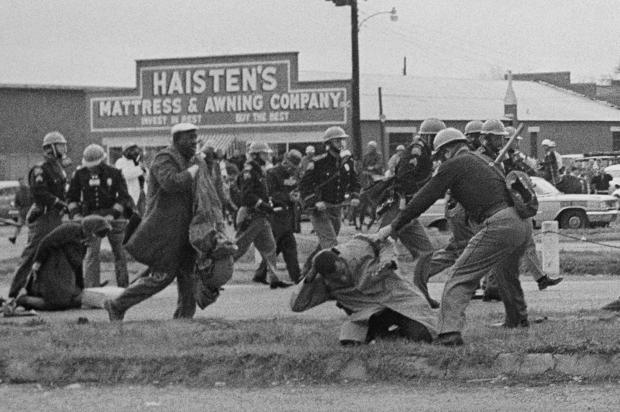
Congressman John Lewis, a civil rights icon who helped organize the 1963 March in Washington and served in Congress for decades, died, his family confirmed in a statement. Lewis was 80 years old.
“It is with inconsolable pain and abiding sadness that we announce the passing of US Representative John Lewis,” said his family’s statement. “He was honored and respected as the conscience of the United States Congress and an icon of United States history, but we knew him as a loving father and brother. He was an unconditional champion in the ongoing struggle to demand respect for dignity and the worth of every human being. He dedicated his entire life to nonviolent activism and was an outspoken advocate in the fight for equal justice in the United States. He will be deeply missed. ”
Speaker of the House of Representatives Nancy Pelosi called Lewis a “titan of the civil rights movement, whose kindness, faith, and courage transformed our nation.”
In a Medium post, former President Obama called Lewis “one of my heroes.”
“Not many of us live to see our own legacy unfold in such a significant and remarkable way,” wrote Obama. “John Lewis yes. And thanks to him, we now all have our marching orders: continue to believe in the possibility of remaking this country we love until it delivers on its promise.”
In December 2019, Lewis announced that he had been diagnosed with stage 4 pancreatic cancer. Lewis said in December that he had been “in some kind of fight, for freedom, equality, basic human rights, for most of my life. I have never faced a fight like the one I have now. ”
He remained a civil rights advocate until the end of his life, and told Gayle King, co-host of “CBS This Morning” in June, that he believed the national protests that erupted after George Floyd’s death were a point of inflection.
“This feels and looks very different. It is much more massive and inclusive. Seeing people from all over the world take to the streets, to the roads, stand up, talk, speak, do what I call ‘getting into trouble'” Lewis said. “And with a sense of determination, commitment and dedication, there will be no going back. People now understand what the struggle was about. It is yet another step on the very, very long road to freedom, justice for all humanity.” .
In 1961, Lewis was just 21 years old when he joined the Freedom Riders traveling by public transit to Alabama in an effort to integrate the bus ride. Lewis was beaten and arrested multiple times for his activism. He was elected as chairman of the Nonviolent Student Coordination Committee in 1963, and was a friend of Dr. Martin Luther King Jr.
Two years later, Lewis was the youngest speaker at the 1963 March in Washington. He was also the leader of the march in Selma, Alabama, across the Edmund Pettus Bridge on March 7, 1965, which became known as “Bloody Sunday” when the police beat up protesters. Lewis’s skull was fractured.
AP
“The sight of the State Troopers with their sticks raised, their gas masks on, tear gas, John Lewis being hit, those scenes were etched in the memory of the United States,” retired CBS News journalist Bill Plante told “60 Minutes” Overtime on Bloody Domingo’s 50th Anniversary. Plante was on the ground reporting in Selma. “And then when there was a call for people to come and join another march, people did. People of all races and creeds.”
Two weeks later, with troops guarding the route, a crowd of thousands led by King crossed the bridge. The events of “Bloody Sunday” helped Congress pass the Voting Rights Act, and President Johnson enacted it on August 6, 1965.
Lewis spoke to CBS News in June about his activism in the 1960s.
“Yes, they beat me, left me bloody and unconscious. But I never became bitter or hostile, I never gave up. I think somehow and somehow if it is necessary to use our bodies to help redeem the soul of a nation then we should do it, “Lewis said.
Lewis spoke about the importance of Selma’s departure in a 2015 interview with USA Today ahead of the event’s 50th anniversary.
“I am convinced beyond any doubt, if it had not been for Selma, there would not have been Barack Obama as president,” Lewis said.
REUTERS
Obama, speaking after Lewis on the 50th anniversary, praised him and the original protesters as “warriors for justice” who pushed the United States into a more perfect union.
“Much of our troubled history: the stain of slavery and the anguish of civil war, the yoke of segregation and the tyranny of Jim Crow, the deaths of four girls in Birmingham and the dream of a Baptist preacher, were found on this bridge, “Obama told the crowd. “It was not a clash of armies, but a clash of wills; a competition to determine the meaning of the United States.”
Lewis first entered elected politics in 1981, when he was elected to the Atlanta City Council. He was first elected to Congress in 1986, representing Georgia’s fifth congressional district, which includes Martin Luther King Jr. National Park and Ebenezer Baptist Church, the church where King served as pastor.
Lewis received the Presidential Medal of Freedom from Mr. Obama in 2011. He wrote a graphic novel, “March,” about his life and the civil rights movement in 2013. Its sequel, “Execute,” was published in 2018. It was also the subject of a documentary called “Good Trouble”, which was released in June.
Lewis was married to his wife, Lillian, for almost 50 years before his death in 2012. Together they had a son, John-Miles.
Riccardo S. Savi / Getty Images for the US Postal Service.
.
